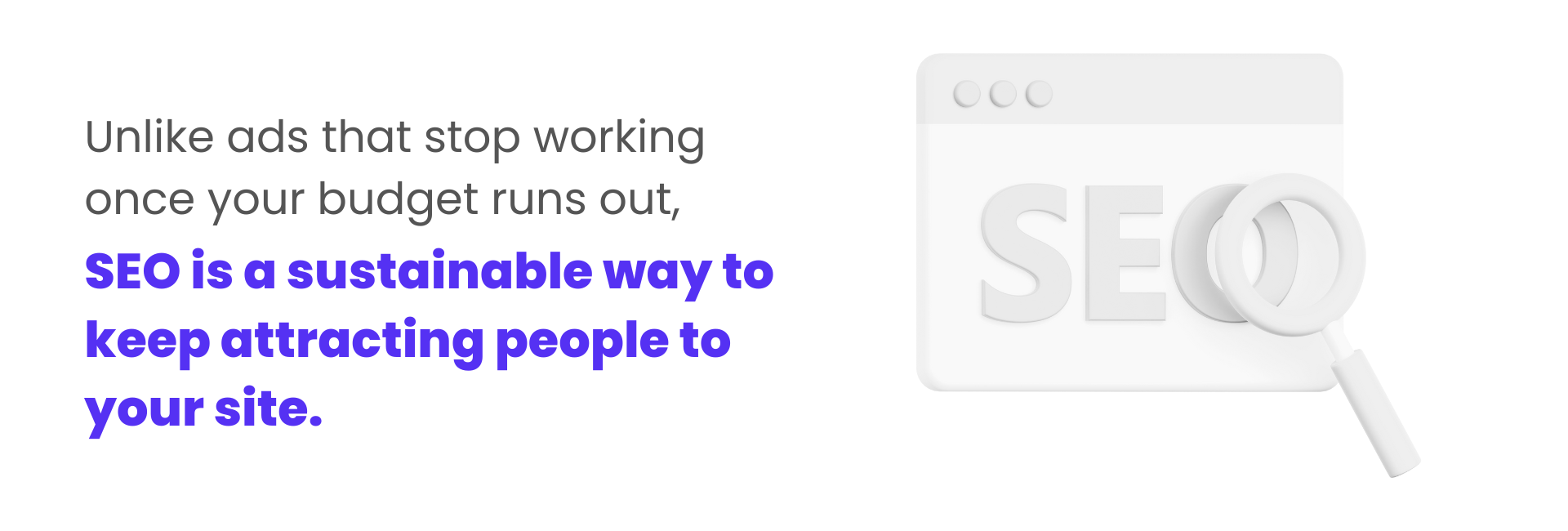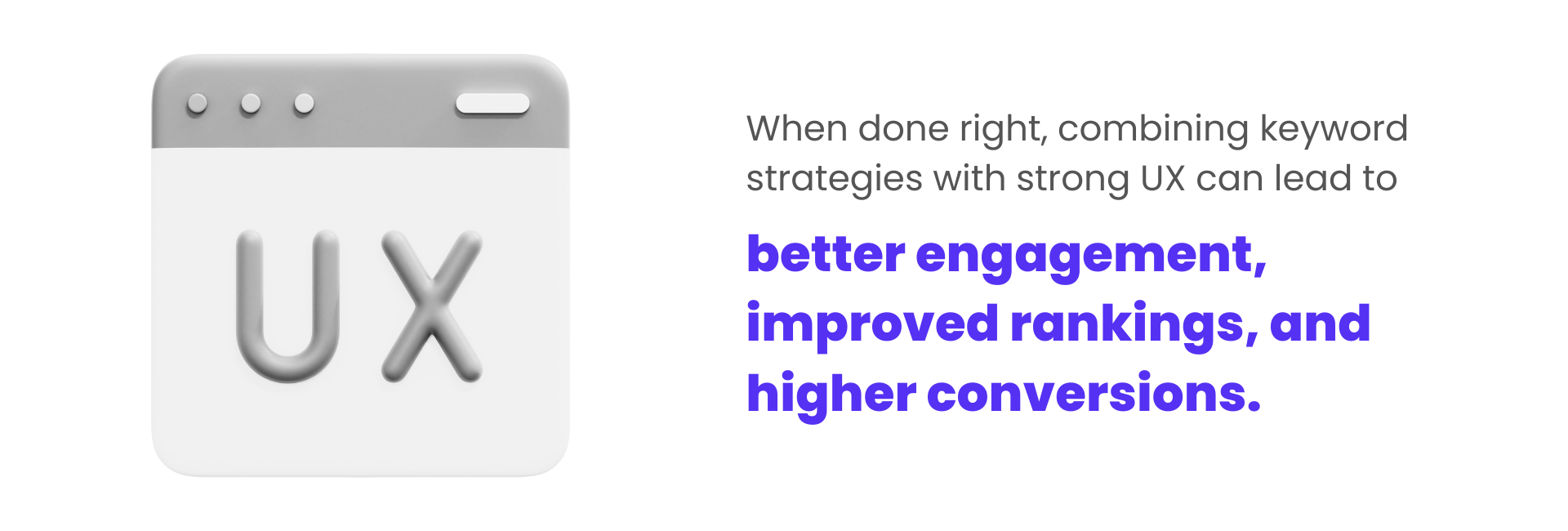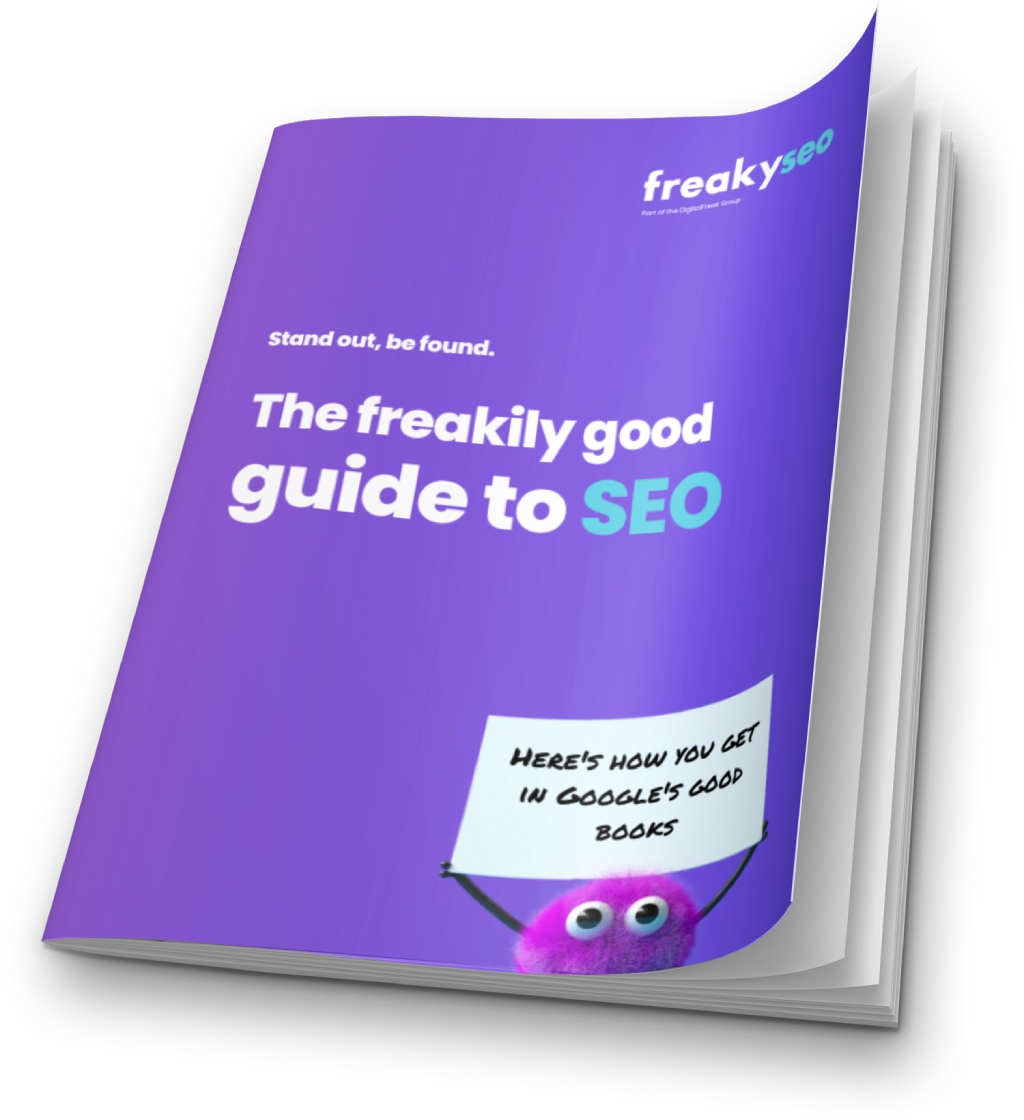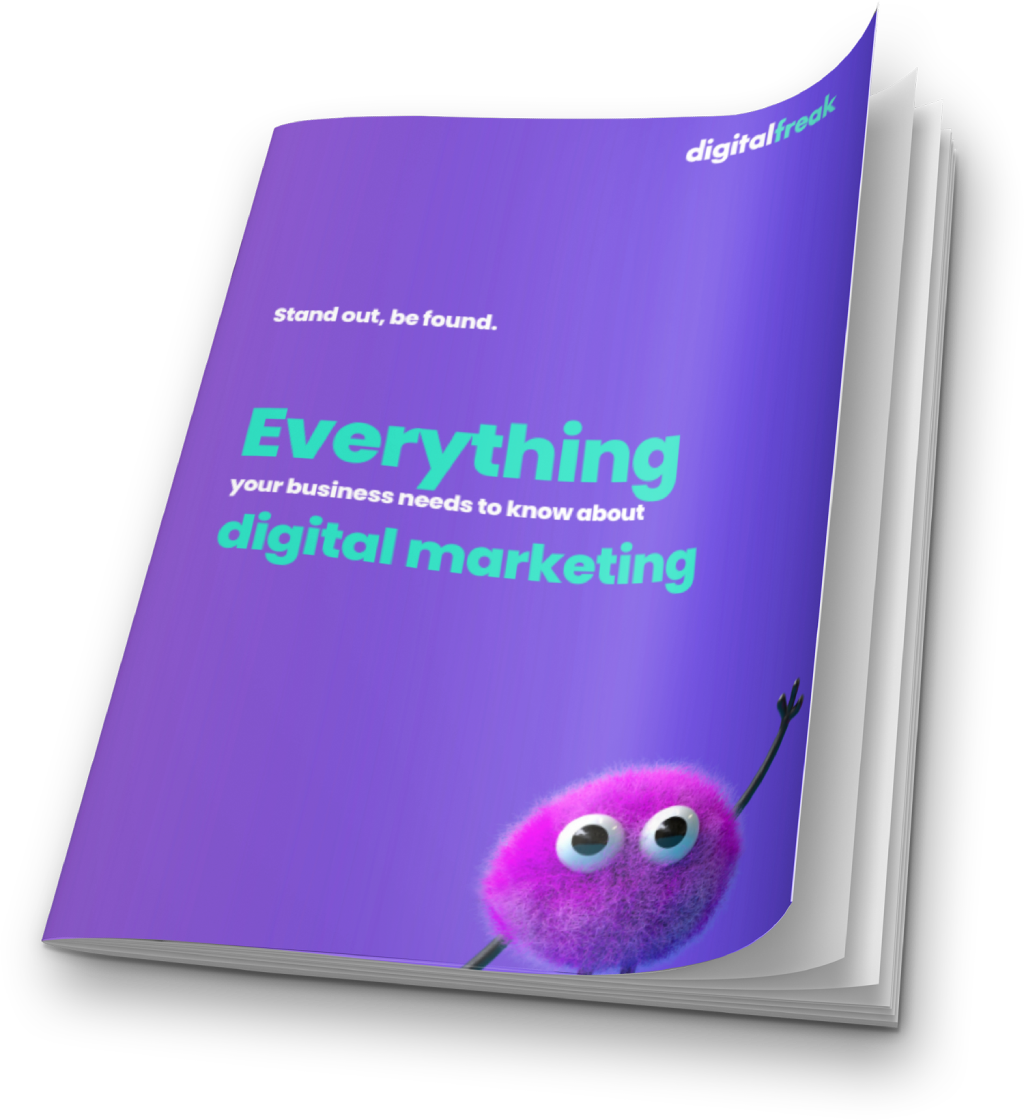In the world of SEO, things are always changing. And as we move into 2025, there’s one major mistake you’ll want to steer clear of: ignoring user experience (UX) in your SEO strategy. If your website isn’t delivering a seamless, enjoyable experience, you’re missing out on ranking opportunities and, more importantly, customers! In this article, our Melbourne SEO team dives into why SEO is still a big deal, why user experience is now front and centre, and the practical ways to keep your website in great shape and at the top of Google search results.
Why SEO Still Matters in 2025
Let’s break down why SEO should be at the top of your to-do list in 2025:
1. SEO Makes You Visible:
A good SEO strategy helps you show up when customers are searching for services like yours, building trust and credibility with new audiences. When you rank higher on Google, you’re way more likely to get clicks – and business.
2. Drives the Right Kind of Traffic:
With SEO, you’re targeting people who are actually looking for what you offer. This means you’re getting the best kind of web traffic – warm leads, not just random visitors – which leads to better engagement and conversions.
3. SEO Pays Off Long-Term:
Unlike ads that stop working once your budget runs out, SEO is a sustainable way to keep attracting people to your site. By optimising once and keeping up with maintenance, you’ll see returns long after your initial investment.

4. Great for User Experience:
A good SEO strategy naturally improves the experience for visitors. When your website loads fast, looks good on mobile, and gives people the info they need, they’re more likely to stick around and become customers.
5. Keeps You Competitive:
SEO levels the playing field, helping smaller businesses compete with larger brands. In 2025, if you’re not prioritising SEO, you’re losing ground to competitors who are.
The Biggest SEO Mistake to Avoid in 2025: Ignoring User Experience (UX)
So, what’s the big mistake? It’s focusing on keywords without considering the overall user experience. SEO in 2025 is about more than just stuffing in keywords and hoping for the best. Search engines want to give users the best experience possible, so they’re prioritising websites that are secure, easy to navigate, fast, and mobile-friendly.
Ignoring UX can mean slower load times, confusing layouts, and an unappealing design – all of which will push visitors away. Search engines like Google are getting better at detecting these factors and giving preference to websites that deliver a smooth, engaging experience.
Practical Tips to Level Up Your Website and Content in 2025
Now that you know why UX is crucial for SEO, let’s look at some tips to help you ace your SEO game.
1. Amp Up Your Page Speed
People won’t wait around for a slow website. Speed is a big deal for both UX and SEO, so make sure your pages load quickly:
Compress Images: Reduce the size of images without sacrificing quality.
Enable Caching: Caching helps pages load faster for returning visitors.
Upgrade Hosting: A good hosting provider can make all the difference for consistent speed.
2. Make Mobile Optimisation a Priority
Most people are visiting sites on their phones now, and Google is prioritising mobile-friendly sites. So, make sure your website looks and works great on mobile devices:
Use Responsive Design: Ensure your layout adapts to any screen size.
Simplify Navigation: Make it easy for mobile users to find what they’re looking for.
Optimise for Touch: Buttons and links should be easy to tap on a small screen.
3. Create Content That Engages
Content is still essential! Make your blogs easy to read and valuable, so people stay on your site and engage with what you have to offer:
Answer Questions Quickly: Users are often searching for quick answers – give them what they’re looking for.
Use Visuals and Formatting: Break up content with headings, images, and bullet points to make it scannable.
Add Interactive Elements: Quizzes, polls, and infographics make your content more engaging.
4. Optimise for Search Intent
People search with specific goals in mind. Figure out what they’re looking for, and craft your content to meet that need.
Use Long-Tail Keywords: These are more specific and often easier to rank for.
Match Content to Intent: Make sure your page answers the question or solves the problem the user has.
Provide Actionable Info: When people search “how to,” give them clear steps to follow.

5. Use Structured Data Markup
Structured data (or schema markup) gives search engines extra info about your site, and it can help you stand out in search results.
Add FAQ Schema: Use FAQ markup to show questions and answers right on the search results page.
Use Product and Review Markup: If you’re selling products, this can highlight star ratings and other details.
Monitor Schema with Google Search Console: Check for any errors in your markup and fix them to avoid SEO penalties.
6. Optimise for Voice Search
With more people using voice search, optimising for natural, conversational language is key.
Focus on Questions: Voice search users often phrase queries as questions.
Use Conversational Keywords: Voice searches are usually longer, so think about how people speak naturally.
Local SEO for Voice: People often use voice to search for local businesses, so keep your Google My Business profile up-to-date.
7. Leverage Video Content
Video is everywhere, and people love it! Adding videos to your website can improve engagement and boost SEO.
Host Videos on YouTube: Google owns YouTube, so linking your videos can increase your visibility.
Optimise Video Descriptions: Use keywords in titles and descriptions to make videos more searchable.
Provide Video Transcripts: This helps with accessibility and gives search engines more content to crawl.
8. Stay on Top of Core Web Vitals
Google’s Core Web Vitals (loading, interactivity, and visual stability) are part of their ranking factors. Keeping these metrics in check will help your SEO.
Improve Loading Speed (LCP): Make sure content loads quickly.
Reduce Input Delay (FID): Minimise JavaScript for faster response times.
Maintain Visual Stability (CLS): Avoid layout shifts by using size attributes for images and ads.
9. Get Local SEO Right
If you’re a local business, make sure people in your area can find you easily.
Optimise Google My Business: Keep your profile accurate with current contact info, hours, and photos.
Use Local Keywords: Incorporate your city or region in your keywords.
Encourage Reviews: Positive reviews boost your local ranking and online reputation.
10. Build High-Quality Backlinks
Backlinks from reputable sources still matter for SEO. High-quality links show search engines that you’re trustworthy.
Guest Blogging: Share your expertise on reputable websites.
Create Shareable Content: Infographics and guides are great for getting backlinks.
Partner with Influencers: Influencers can link back to your site and give you exposure.
With a focus on user experience, practical SEO strategies, and regular updates, your website will be ready to tackle 2025 and beyond. At Digital Freak in Melbourne, we’re here to help you every step of the way. Book a FREE strategy call and let’s make SEO easy and impactful for your business!
FAQs
Why does SEO focus so much on user experience now?
SEO has evolved to centre around user experience (UX) because search engines, especially Google, prioritise websites that visitors genuinely enjoy using. A website with great UX not only keeps people engaged longer but also encourages them to take meaningful actions, like making a purchase or filling out a contact form. This engagement signals to search engines that your site is high-quality and valuable, which boosts your SEO rankings. Improving UX doesn’t just help with SEO – it enhances your brand’s reputation and customer loyalty, too. If you want to learn how to boost your site’s UX to benefit both SEO and user satisfaction, our small business digital agency offers affordable SEO services. Schedule a free strategy call with us to see how we can help!
What are Core Web Vitals, and why do they matter?
Core Web Vitals are three specific metrics that Google uses to assess UX on your website: loading speed (Largest Contentful Paint), interactivity (First Input Delay), and visual stability (Cumulative Layout Shift). In simpler terms, they measure how fast your content loads, how quickly it responds to user actions, and how stable the layout is as it loads. Meeting or exceeding Core Web Vitals standards can give your website a significant SEO advantage, as Google sees these factors as essential to providing a positive user experience. For businesses looking to improve these vital metrics, our digital agency provides affordable SEO and website optimisation services. Book a free strategy call today to learn how we can help your site excel in Core Web Vitals.
Do keywords still matter if UX is so important?
Absolutely! Keywords are still essential in SEO, but the way we use them has evolved. Instead of overloading your content with keywords, it’s about choosing terms that match your audience’s search intent and using them naturally within high-quality, informative content. Think of keywords as a way to guide search engines in understanding what your page is about, while UX improvements ensure visitors enjoy their experience once they arrive. When done right, combining keyword strategies with strong UX can lead to better engagement, improved rankings, and higher conversions. Our team specialises in creating SEO strategies that balance keywords and UX. If you’re looking for affordable SEO solutions, reach out for a free strategy call!

How can I improve my site’s load time?
A fast-loading site is crucial for keeping visitors engaged and boosting your SEO. Improving load time involves steps like compressing images to reduce file sizes, enabling caching so returning visitors don’t have to reload the entire site, minimising JavaScript and CSS files, and, in some cases, upgrading your hosting plan. Even small improvements in load time can make a noticeable difference in user experience and SEO performance. At our Melbourne agency, we offer affordable SEO services designed to enhance site speed and overall UX, ensuring your website is quick and reliable. Interested in learning more about how we can speed up your site? Schedule a free strategy call with us today!
What’s the best way to keep up with SEO changes in 2025?
SEO is constantly evolving, and staying on top of changes can be challenging for small business owners. Some simple ways to stay updated include checking Google’s guidelines periodically, using tools like Google Search Console to monitor your site’s performance, and partnering with a trusted digital agency in Melbourne. Working with an agency like ours means you have a team dedicated to understanding and implementing the latest SEO trends and updates, so your website stays competitive. We offer affordable SEO packages tailored for small businesses, and we’d love to help you keep your site optimised in 2025 and beyond. Contact us for a free strategy call to see how we can support your SEO goals.

Written by
Michelle van Blerck – Communications Manager
I take a spark and turn it into a fireworks show! From internal client communications to LinkedIn authority articles, social media, and blogs, I write it all. My aim is to represent clients authentically with high-quality content that Google loves. I’ll show consumers why you’re the business they want to work with, buy from, and follow for life!














